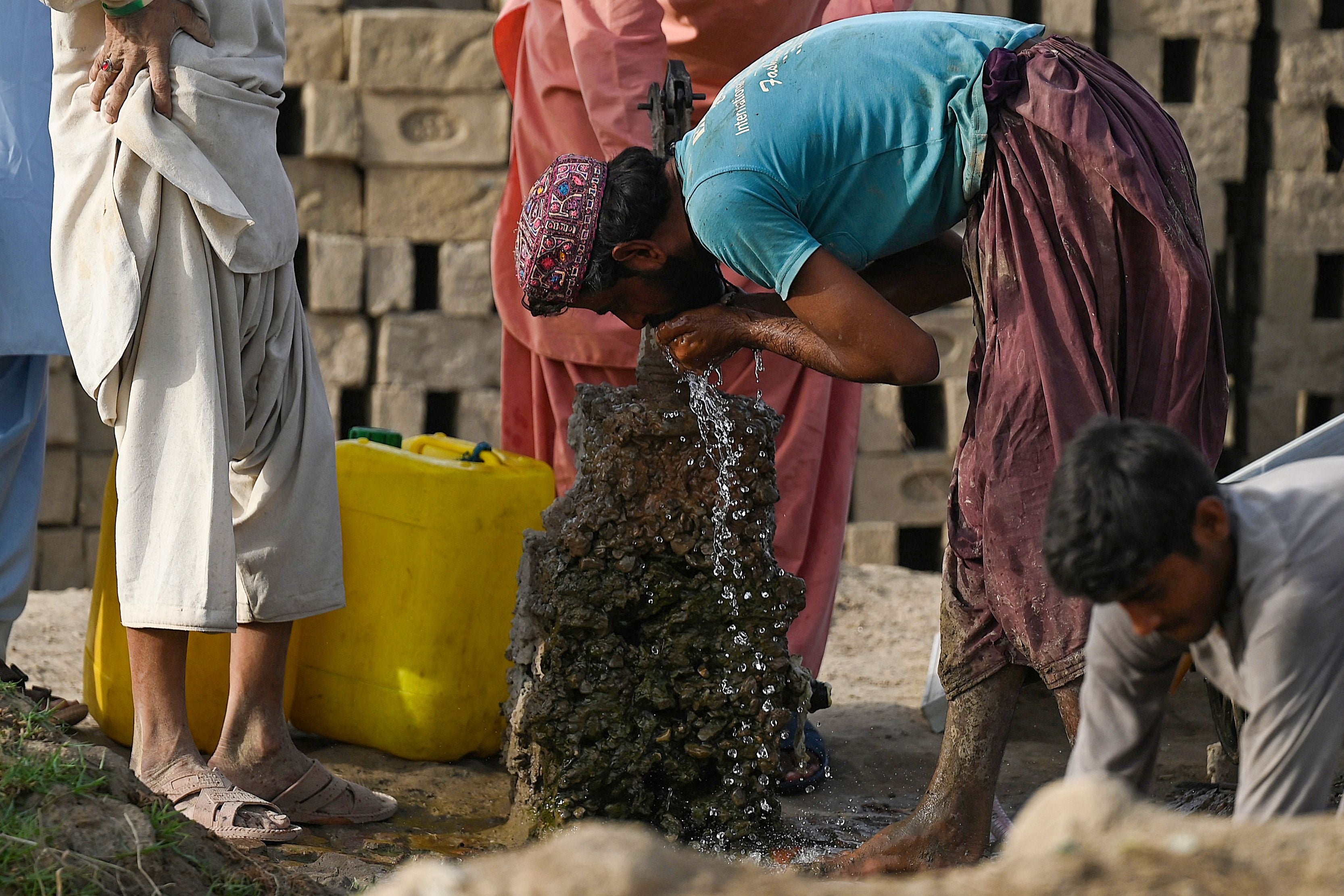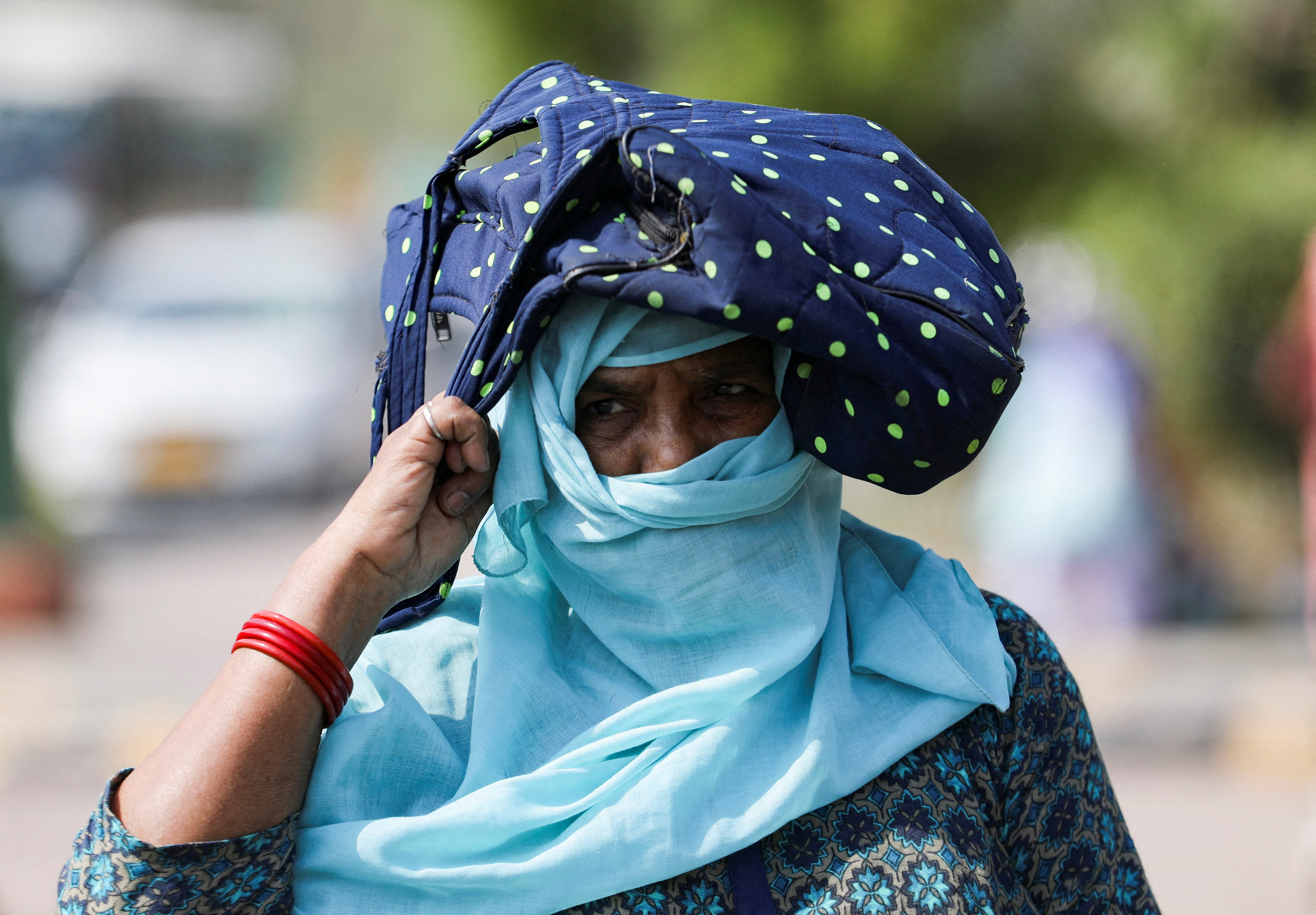Climate change made blistering heatwave in India and Pakistan ‘30 times more likely’
“As long as greenhouse gas emissions continue, events like these will become an increasingly common disaster,” said one climate scientist

Human-induced climate change made the blistering heatwave gripping parts of India and Pakistan 30 times more likely, according to scientists.
India and Pakistan have been suffering from extreme heat on and off since March, which was the hottest in India since records began 122 years ago. Pakistan has also reported record temperatures.
Climate experts have repeatedly warned heatwaves are increasing in intensity and frequency across the world due to global heating, mainly caused by burning fossil fuels.
The increase in the likelihood of heatwaves is of concern because they are the deadliest extreme weather events and also damage crops and livelihoods.

At least 90 people are reported to have died across Pakistan and India because of the extreme heat, while the true toll is likely to be significantly higher.
Meanwhile, India chose to ban wheat exports this month citing food insecurity after its harvest suffered in the heat.
The group of international climate scientists looked at weather data and climate models to compare the climate as it is today - after about 1.2 degrees celsius of global heating since the industrial revolution - and the climate of the past.
They focused on the average maximum daily temperatures during March and April in northwestern India and southeastern Pakistan, the areas most affected by the recent heat.

The analysis found heatwaves such as the one affecting the region are still rare, with a one per cent chance of them happening each year.
However, scientists say climate change is making them around 30 times more likely, meaning such an event would have been “extraordinarily” rare without global warming.
If global temperature rise reaches 2C, a heatwave like this one would be expected as often as once every five years, the scientists found.
Friederike Otto, a senior lecturer in climate science at Grantham Institute, Imperial College London, said the results of the World Weather Attribution study were on the conservative side.
Asked why they differed from the UK Met Office’s study published last week, which found that climate change is making record-breaking heatwaves in northwest India and Pakistan 100 times more likely, she said there were two main reasons.
The first is the Met Office study focused on average temperatures in April and May while the World Weather Attribution study focused on March and April - because they were interested in the fact the heatwave happened early in the year.
The second was because the Met Office used a climate model and the World Weather Attribution used 20 different models. Nevertheless, the big takeaway was that climate change is a “real game changer” when it comes to heatwaves, she said.
Dr Otto said heatwaves were the type of extremes most strongly increasing in a warming world.
“As long as greenhouse gas emissions continue, events like these will become an increasingly common disaster,” she said.
The United Nations landmark climate report published last August found: “It is virtually certain that hot extremes (including heatwaves) have become more frequent and more intense across most land regions since the 1950s.”
The report said it had “high confidence” that human-induced climate change is the main driver of these changes.
Join our commenting forum
Join thought-provoking conversations, follow other Independent readers and see their replies
Comments
Bookmark popover
Removed from bookmarks